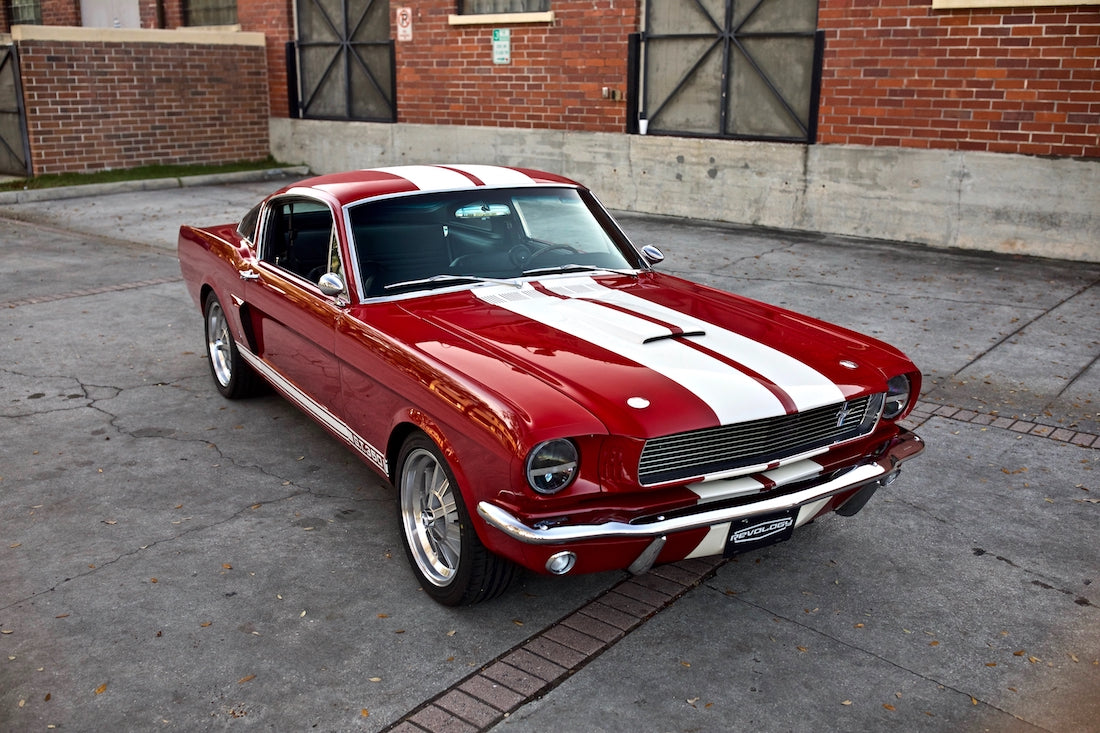
Ford Coyote engine packs a punch for Ford and Revology Cars
- on November 04, 2019
- Categories: Restomod
Rarely does an engine codename become a legend in its own right, but that’s what has happened with Ford’s ‘Coyote’ V8 motor.
Since launching in the 2011 model Mustang, the Coyote 5.0-liter V8 has evolved through three generations, from 2011 to 2014, 2015 to 2017 and from 2018 in its current, ‘gen 3’ form.
Though Ford has not trademarked the Coyote name for the V8 it started building in 2010, the word is now synonymous with one of the most desirable powerplants to be found in a production car, whether it be the latest Mustang or the reproduction original Mustangs made by Revology Cars.
For Mike Robins, product manager for Ford Performance Engine Parts, the power of the Coyote moniker is undeniable. “The name has caught on, especially in the aftermarket,” says Robins. “There is a lot of credibility built around that name and the engine in general.”
“The first ever Revology production car was powered by a Gen 1 Coyote engine,” says Tom Scarpello, Revology Cars’ Founder and CEO. “We moved to the Gen 2 when it was introduced, and we were the first to offer the Gen 3 in a new reproduction Ford vehicle. We have made a huge commitment to the Coyote because of its unparalleled combination of high-revving power, light weight, everyday drivability, and bulletproof reliability.”
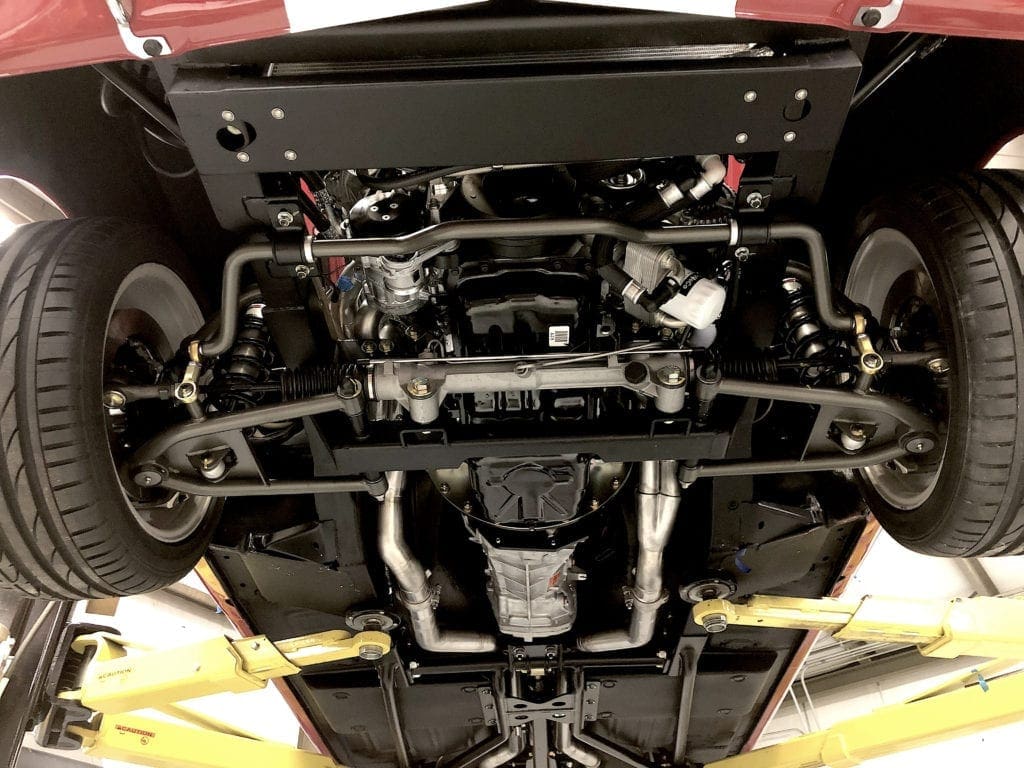
Robins says there is a solid following for the Coyote among Ford owners and the aftermarket world. “These audiences are sometimes the same and sometimes different,” Robins notes. “In the aftermarket area, there are restomod guys, hot rod guys and even vehicle manufacturers like Revology.
“The Coyote appeals to a lot of people. There’s even a whole industry that builds parts to make the Coyote easier to install. They make it an easier engine swap and people wouldn’t make a business out of that unless there was a good demand. I think the engine has earned that respect.”
Robins points to numerous applications for the Coyote, not just in Fords, but also in boats and even in other auto manufacturers’ products. “People have embraced it. Certainly first generation Mustangs are popular, F-100s are popular and Broncos are huge right now with Coyote swaps.
“A big part of the audience is from loyal Ford fans who want to keep a Ford engine in their vehicles and the Coyote offers a great platform to do that.”
The attractions of the Coyote engine design - its fuel efficiency, drivability and ample power – are keys to its popularity. ”Compared to original engines, having fuel injection makes the Coyote convenient for a lot of people. The Coyote’s technology not only produces good fuel economy, but the engine excels in its cylinder design, with free flowing heads.”
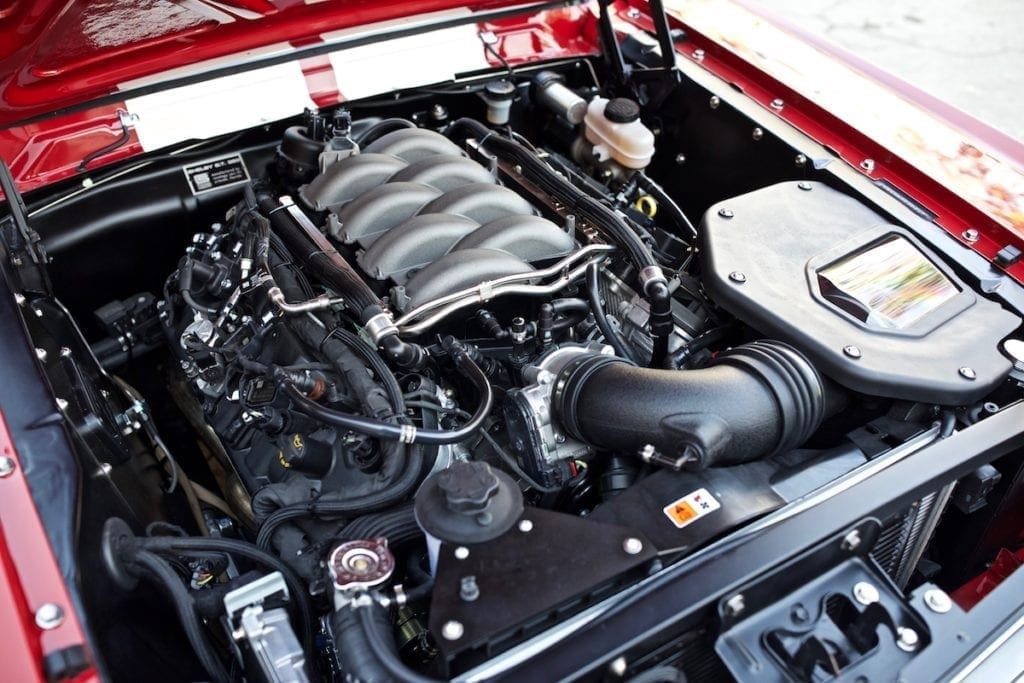
Over the past decade, the Coyote has stepped up its power output from 420 to 435 to 460 hp in the gen 3 version. Robins notes that “the current Coyote is the most radically different, with direct injection, a compression ratio bumped up to 12.1 and the capability to rev up to 7500rpm.”
Robins says the aftermarket crate engine business with Coyote is “significant” and he thinks it “makes perfect sense” for Revology’s reproduction Mustang to be powered by a new engine. “One interesting aspect is these engines as they come down the production line are the same, until they go into a production vehicle or our catalog. The crate engine is literally the same as the one in a new Mustang.”
The Coyote name has developed a “ton of equity, to the point that all these sub-businesses have been created around a word,” Robins adds. “It’s pretty remarkable and only enables us at Ford and the people at Revology Cars to build a better engine and a better car.”
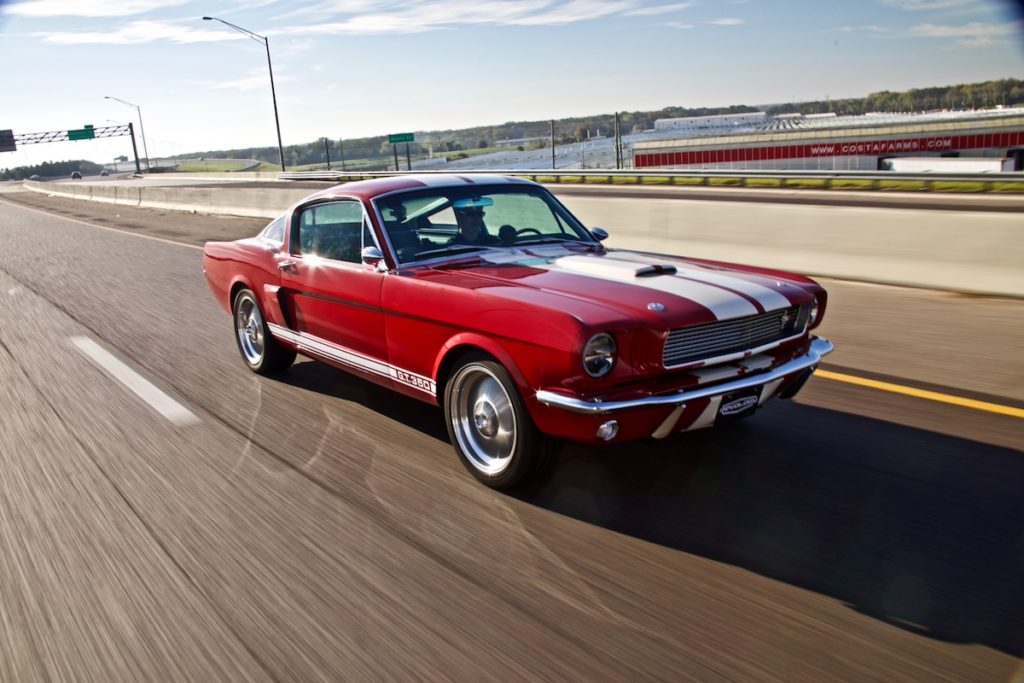
“We will soon be offering parts kits to facilitate the installation of the Coyote engine in vintage Mustangs,” says Scarpello. “Once you experience a Coyote engine in a vintage Mustang, you can’t go back to a pushrod engine. There is really no other choice.”
For our complete collection of classic Mustang performance parts click here - https://shop.revologycars.com/.


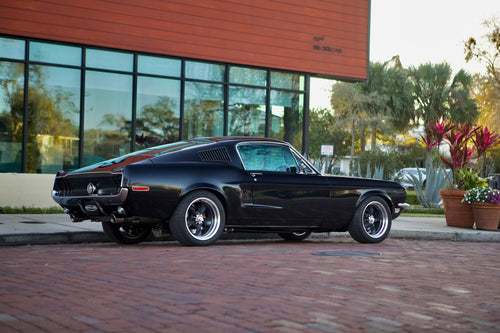
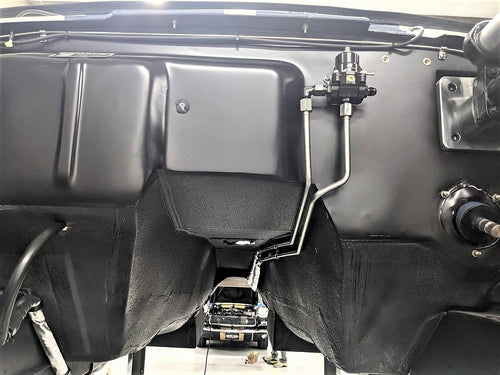
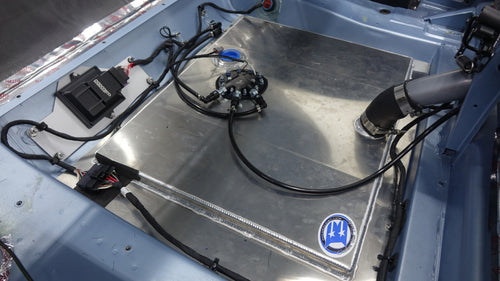
What are the prices of your cars and warranties?